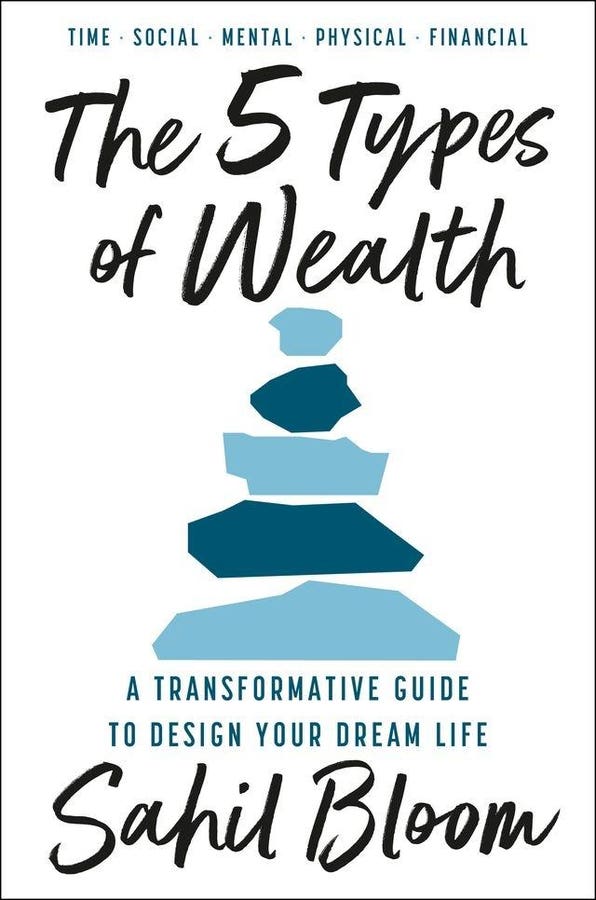Sahil Bloom, a prominent thought leader in personal growth and development, posits a compelling framework for a fulfilling life built on five interconnected pillars of wealth: time, social, mental, physical, and financial. His recent book, “The Five Types of Wealth,” offers practical guidance for individuals at all life stages, though its wisdom resonated particularly strongly with those approaching or enjoying retirement, as highlighted in a recent podcast interview. A key takeaway from Bloom’s research, gleaned from interviews with octogenarians and nonagenarians, is the surprising insignificance of financial wealth in the face of life’s closing chapters. Instead, these individuals emphasized the importance of cherishing loved ones and embracing life’s simple joys, a stark contrast to the often-prioritized pursuit of monetary gain. This underscores the crucial need to re-evaluate our priorities and embrace a more holistic understanding of wealth.
Central to Bloom’s philosophy is the concept of Time Wealth, a poignant reminder of our finite existence and the urgent need to maximize the value of each passing moment. Drawing upon the Stoic philosophy of “Memento Mori,” Bloom encourages us to confront our mortality not as a morbid exercise, but as a catalyst for intentional living. Time Wealth encompasses three key elements: the freedom to choose how we spend our time, agency over our schedules, and the ability to prioritize what truly matters. By recognizing time as our most precious asset, we can break free from the constraints of societal expectations and design a life that aligns with our values and aspirations. This involves consciously cultivating control and flexibility over our time, empowering us to live life on our own terms.
Further emphasizing the importance of human connection, Bloom addresses the pervasive loneliness epidemic, a silent crisis exacerbated by our increasing reliance on technology. He argues that this disconnection poses a greater threat to humanity than most other contemporary issues. Our obsession with screens, he asserts, is eroding our ability to engage in meaningful interactions and build genuine relationships. This depletion of Social Wealth, the network of supportive and enriching connections we cultivate, has far-reaching consequences for our well-being. Bloom advocates for a shift away from transactional networking towards “anti-networking,” a deliberate effort to foster deep, meaningful connections that transcend superficial interactions.
Anti-networking prioritizes the quality of connections over quantity, emphasizing genuine engagement and mutual support. This approach encourages us to invest time and effort in nurturing existing relationships and building new ones based on shared values and genuine interest. This cultivation of Social Wealth provides not only emotional sustenance but also a vital safety net in times of need. Bloom champions the idea of daily investments in relationships, emphasizing that small, consistent actions, like expressing appreciation or simply checking in, can have a profound impact on the strength and longevity of our connections. These investments yield invaluable returns both in the present and in the future, solidifying our social foundation and enriching our lives immeasurably.
Bloom’s framework extends beyond the intangible realms of time and social connection to encompass physical and mental well-being. He stresses the importance of prioritizing physical health and vitality throughout life, recognizing that a healthy body is the foundation for a fulfilling existence. This involves making conscious choices about our diet, exercise, and lifestyle, ensuring we maintain the physical capacity to pursue our passions and engage fully with the world around us. Mental wealth, another crucial component, involves cultivating a mindset of continuous learning and growth. By actively engaging our curiosity and seeking out new knowledge and experiences, we can expand our horizons, challenge our assumptions, and cultivate a more nuanced understanding of ourselves and the world.
Finally, Bloom addresses the often-misunderstood role of financial wealth. While acknowledging its importance in providing security and enabling certain experiences, he cautions against allowing the pursuit of money to become the dominant force in our lives. True financial independence, he argues, lies not in accumulating vast sums of money, but in defining our own version of “enough”—a level of financial security that allows us to live comfortably and pursue our passions without being consumed by the relentless pursuit of more. This requires a conscious shift away from societal pressures and comparisons, focusing instead on aligning our financial goals with our personal values and aspirations. By defining our own measure of success and recognizing when we have reached a point of sufficiency, we can liberate ourselves from the endless cycle of wanting and cultivate a deeper sense of contentment and fulfillment.
In essence, Bloom’s Five Types of Wealth offer a comprehensive roadmap for designing a life of purpose, meaning, and genuine prosperity. By prioritizing time, nurturing our social connections, cultivating mental and physical well-being, and defining our own relationship with financial wealth, we can create a life rich in experiences, connection, and personal growth. His framework encourages us to shift our focus from external validation and material possessions to internal fulfillment and the cultivation of lasting, meaningful wealth in all areas of our lives. This holistic approach empowers us to take control of our narrative, embrace our finite existence, and live each day with intention, purpose, and gratitude.

